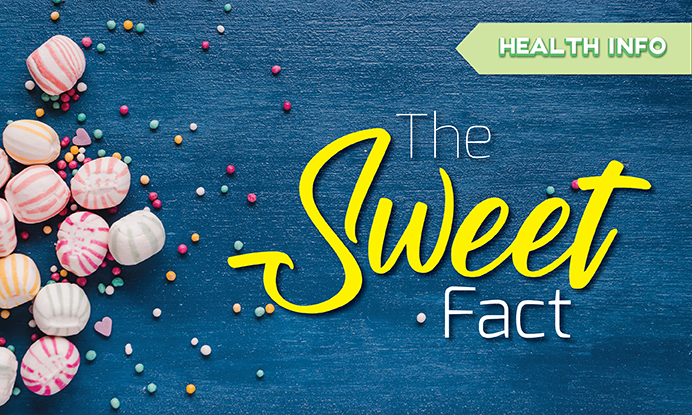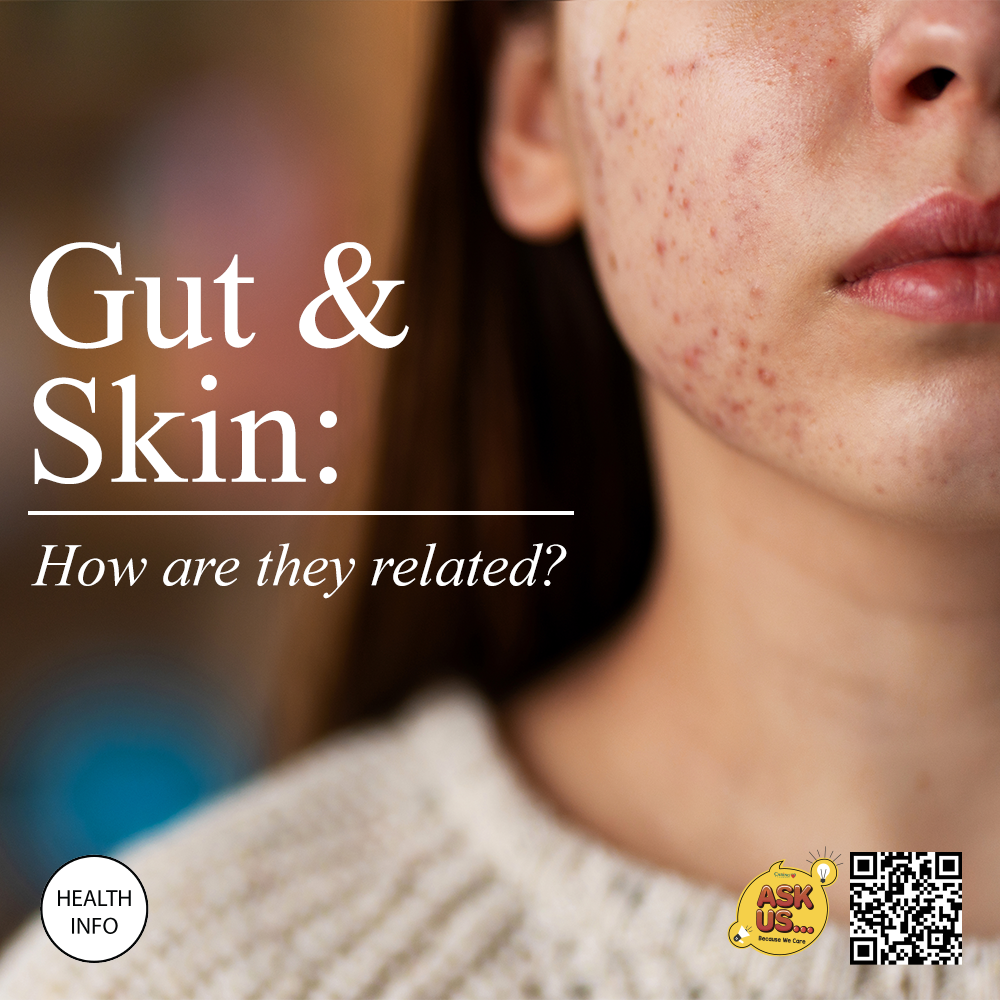
Sugar intake habits in Malaysia
- The World Health Organisation (WHO) recommends adults and children reduce their daily intake of free sugars to less than 10% of their total energy intake.1
- WHO suggests a further reduction of the intake of free sugars to below 5% of total energy intake or roughly 25 grams (6 teaspoons) per day would provide additional health benefits.1
- According to the Malaysian Adult Nutrition Survey (MANS) 2003, Malaysian adults consumed 7 teaspoons of sugar per day comprising 30 grams (3 teaspoons) of sweetened condensed milk (equivalent to 16 grams sugar) and 21 grams of table sugar (4 teaspoons) per day.2
- Additional sugar intake is unnecessary as it contributes extra calories and can lead to obesity, diabetes, and many other health problems like tooth decay.
What is sugar?
Sugar is a simple carbohydrate. They are naturally available in carbohydrates rich foods such as rice, noodles, bread, and edible roots. They are also present in fruits as fructose and in milk as lactose. They have calories and can raise your blood glucose levels. They can provide instant energy to the body. Sugar may be named as cane sugar, sucrose, fructose, honey, and molasses on food labels.
Types of sugar
1. Natural sweetener
Natural sweeteners like stevia, luo han guo, coconut flower sugar and honey are natural sugar that are less processed than refined sugar and create fewer fluctuations in blood sugar levels. They are better than refined sugars as they still contain some vitamins, minerals and antioxidants.4 Although natural sweeteners are generally safer alternatives to refined sugar, they should still be consumed in moderation.
2. Reduced-calorie sweetener
Reduced-calorie sweeteners are polyols, which also known as naturally occurring sugar alcohols. These include sorbitol, mannitol, isomalt, maltitol, erythritol and xylitol. They have minimal effect on blood sugar because they contain small amounts of carbohydrates. They are normally used in gums, candies, toothpaste and claimed to prevent tooth decay. The only significant health issue pertaining to sugar alcohols is that they may cause gastrointestinal discomfort with the excessive use due to incomplete digestion.
3. Artificial sweeteners
Artificial sweeteners are calorie-free sugar that will not raise blood sugar levels. They replace sugar in thousands of products, especially in food and beverage. Some of the artificial zero-calorie sweeteners include saccharin, aspartame, acesulfame k, sucralose, and advantame. Large studies showing that artificial sweeteners are safe for human as they can help to reduce calorie intake, control blood sugar levels, and prevent tooth decay. It believed that artificial sweeteners may play a role in weight gain and obesity due to its stimulating effect on appetite; however more evidences and longer studies are needed.5 There are several disadvantages of aspartame. Since aspartame contains a source of phenylalanine, it should be avoided by people with metabolism disorder ‘phenylketonuria (PKU)’, which is a rare genetic disorder that body can’t break down phenylalanine. Hence, product that contain aspartamehas the warning “Phenylketonurics: contains phenylalanine” on their labels. Besides, aspartame has been related to some health issues ranging from mild conditions like headaches, dizziness, and changes in mood, to more serious health problems such as diabetes mellitus, convulsions, hyperthyroidism, hypertension and arthritis. However, the latest studies have not found any consistent evidence of harm in humans.6
What is Glycemic Index (GI)?
- Glycemic index measures how a carbohydrates containing food increases blood glucose.
- GI can be ranked into three categories:
- 55 or less = Low GI (good)
- 56- 69 = Medium GI
- 70 or higher = High GI (bad)
- The smaller the GI, the less impact on the sugar levels. Low GI foods are digested and absorbed slowly, resulting in gradual increase in postprandial sugar levels. High-GI foods are digested and absorbed quickly, causing a large spikes in postprandial sugar levels.7
- Examples of the GI of a variety of sweeteners:
| Sweeteners | Type | Glycemic Index |
| Glucose/dextrose | Sugar | 100 |
| Sucrose (table sugar) | Sugar | 65 |
| Molasses | Sugar extract | 55 |
| Maple syrup | Natural sugar | 54 |
| Honey | Natural sugar | 50 |
| Lactose | Sugar | 45 |
| Cane sugar | Sugar extract | 43 |
| Coconut sugar | Natural sugar | 35 |
| Fructose | Sugar | 25 |
| Xylitol | Sugar Alcohol | 12 |
| Sorbitol | Sugar Alcohol | 4 |
| Mannitol | Sugar Alcohol | 2 |
| Isomalt | Sugar Alcohol | 2 |
| Erythritol | Sugar Alcohol | 1 |
| Luo Han Guo | Natural Sweetener | 0 |
| Stevia | Natural Sweetener | 0 |
| Acesulfame K | Artificial Sweetener | 0 |
| Aspartame | Artificial Sweetener | 0 |
| Saccharin | Artificial Sweetener | 0 |
| Sucralose | Artificial Sweetener | 0 |
“Sugar” in a product food label
- “No Sugar” or “Sugar free” – Food products do not contain sugar. They may however contain sugar alcohols or artificial sweeteners.
- “No added sugar” – no extra sugar was added during processing. The original food source however might have already contained sugar.
- In conclusion, always check the nutrition label and the ingredient list of packaged food products.
Sugar substitutes in cooking and baking
- In baking or cooking, sugar substitutes may not reach the same end result (in terms of texture, taste and cooking time) because sugar substitutes do not have exact chemical composition like table sugar.
- Sugar substitutes do not provide the same browning effect as sugar, hence baked goods tend to be in lighter colour.
- In spite of it all, sugar substitutes can be considered a healthy option for you and your family to cut down on sugar while enjoying the sweet treats.
Common sugar substitutes
- LAKANTO
- Sweetness comes from natural mogrosides that are much sweeter than sugar
- Zero calorie
- Zero impact on blood sugar or insulin
- Born from a perfect mix of non-GMO Erythritol and Monk Fruit Extract. Non-GMO means non-genetically modified organisms. These refer to foods that are not derived from genetically engineered plants.13
- Zero additives, preservatives or artificial flavor
- Zero bitterness or chemical aftertaste
- Suitable for beverages, cooking and even baking as the taste is not altered by heat.
- Vegan and gluten free
- EverSweet
- Contains Rebiana (Reb-A) which is extracted from Stevia leaves
- Natural low calorie sweetener
- Suitable for diabetics and dieters as a sugar substitute in hot or cold beverages.
- Equal
- Equal classic sweetener contains aspartame with zero calories
- Easy and quick way to cut down sugar by dissolving quickly in hot or cold beverages
- Aspartame may however loses some of its sweetness when heated.
References
- WHO guideline: sugar consumption recommendation [Internet]. World Health Organization. 2018 [cited 22 November 2018]. Available from: https://www.who.int/mediacentre/news/releases/2015/sugar-guideline/en/
- Intake of added sugar in Malaysia: a review [Internet]. Apjcn.nhri.org.tw. 2018 [cited 22 November 2018]. Available from: http://apjcn.nhri.org.tw/server/APJCN/25/2/227.pdf
- WebMD. (2018). Artificial Sweeteners and Diabetes. [online] Available at: https://www.webmd.com/diabetes/artificial-sweeteners-diabetes-patients#1 [Accessed 18 Nov. 2018].
- Natural Sweeteners – an overview | ScienceDirect Topics [Internet]. Sciencedirect.com. 2018 [cited 2 December 2018]. Available from: https://www.sciencedirect.com/topics/food-science/natural-sweeteners
- The truth about sweeteners [Internet]. nhs.uk. 2018 [cited 18 November 2018]. Available from:https://www.nhs.uk/live-well/eat-well/are-sweeteners-safe/
- Aspartame – Benefits, Phenylketonuria and Is Aspartame Safe [Internet]. Diabetes.co.uk. 2018 [cited 2 December 2018]. Available from: https://www.diabetes.co.uk/sweeteners/aspartame.html?fbclid=IwAR1mExDpIm1CM6egXhbkMUYhsHt13EjF6wU7jMFFHCfglB0R9LBE6PYeMAQ
- Suzanne Albrecht I. The Glycemic Index: Does It Have a Role in Diabetes Management? [Internet]. Uspharmacist.com. 2018 [cited 2 December 2018]. Available from:https://www.uspharmacist.com/article/the-glycemic-index-does-it-have-a-role-in-diabetes-management?fbclid=IwAR2RY67MUJTqOsN4Hdok33jGCNvQIzqNHONPSOVwq-iZI5ZSehCi4CCwwKA
- Comparing Sweeteners: Xylitol vs. Stevia [Internet]. Healthline. 2018 [cited 18 November 2018]. Available from: www.healthline.com/health/food-nutrition/xylitol-stevia-comparison#3
- Association A. Glycemic Index and Diabetes [Internet]. American Diabetes Association. 2018 [cited 18 November 2018]. Available from: http://www.diabetes.org/food-and-fitness/food/what-can-i-eat/understanding-carbohydrates/glycemic-index-and-diabetes.html
- Molasses: Types, nutrition, and benefits [Internet]. Medical News Today. 2018 [cited 18 November 2018]. Available from: https://www.medicalnewstoday.com/articles/318719.php
- Glycemic Index for Sweeteners [Internet]. Sugar-and-sweetener-guide.com. 2018 [cited 18 November 2018]. Available from: http://www.sugar-and-sweetener-guide.com/glycemic-index-for-sweeteners.html
- Baking and Cooking With Sugar Substitutes – Diabetes Self-Management [Internet]. Diabetes Self-Management. 2018 [cited 18 November 2018]. Available from: https://www.diabetesselfmanagement.com/nutrition-exercise/meal-planning/baking-and-cooking-with-sugar-substitutes/
- Guidance for Industry: Voluntary Labeling Indicating Whether Foods Have or Have Not Been Derived from Genetically Engineered Plants [Internet]. Fda.gov. 2018 [cited 22 November 2018]. Available from: https://www.fda.gov/Food/GuidanceRegulation/GuidanceDocumentsRegulatoryInformation/LabelingNutrition/ucm059098.html
Tags
Latest Health Info
Gut and Skin: How They Are Related?
Did you know that your gut and skin are connected? The gut-skin axis is the relationship between the microorganisms in ...
Ladies, Let’s Bring Out The Beauty In You
Ladies, Let’s Bring Out The Beauty In You As women juggle the demands of work, family, and personal health, taking ...
Healthy Weight, Happy Joints
How Does Weight Affect Knee Health? The Link Between Pounds And Pain Osteoarthritis (OA) involves the degeneration of joints, which ...



